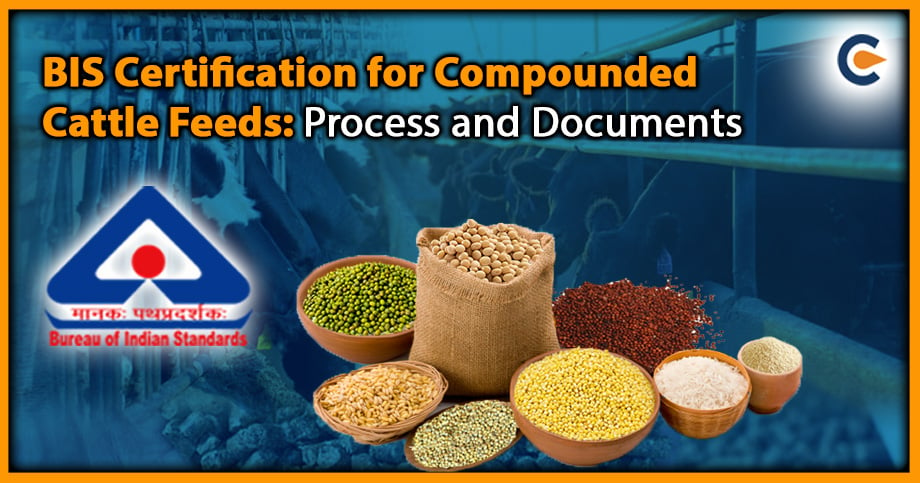Portland slag cement has a great demand in the market owing to its unprecedented compressive strength and eco-friendliness. It comprises 25-70 percent granulated slag, 3 percent gypsum, and the rest is clinker. Granulated slag is primarily referred to as a non-metallic product that contains over 90 percent glass content. Portland slag cement is widely used in marine construction, industrial projects, and concrete road and flyover construction. Quality and testing parameters concerning portland cement are specified in the Indian Standard namely IS 455:2015. The Bureau of Indian Standards (BIS) refers to the said standard to outline guidelines on how such products should be manufactured and tested. Also, these norms serve as the checklist for securing BIS registration. Let’s understand more about IS 455:2015 and the procedure concerning BIS certification for Portland Slag cement.
Significance Of IS 455:2015 and Its Role in BIS Certification
- IS 455:2015 is an Indian Standard that outlines how Portland slag cement should be manufactured, what should be it chemical and physical requirements, and how it should be tested.
- Portland slag cement must contain fundamental constituents such as clinker, gypsum, and granulated slag in apt proportion. All these constituents must be blended or mixed to perfection so as to attain uniformity.
- Manufacturers can either separately or collectively grind these constituents to produce the cement.
- The percentage of slag in the portland slag cement should be within a range of 25-65 %.
- Portland cement clinker is a key constituent of portal cement whose chemical requirements should be in accordance with IS 269:2015.
- The physical requirements of portland slag cement should align with the norms under IS 455:2015.
Those seeking BIS certification for Portland Slag cement must comply with these requirements without fail.
Tests to Qualify For BIS Certification for Portland Slag Cement
To determine whether or not the Portland slag cement meets the underlying quality norms and physical requirements, the following tests should be performed:
- Chemical Test
- Magnesium Oxide
- Loss Of Ignition
- Sulper Trioxide
- Total Chloride Content
- Insoluble Residue
- Alkalies
- Physical Test
- Fineness
- Setting time
- Soundness
- Compressive strength
Every manufacturer should have a well-equipped lab within the production premises to perform these tests. The methods for conducting such tests are mentioned in the standard. The manufacturer must guarantee that the product has passed the underlying requirements for quality.
Marking Norms to Be Followed By the Manufacturer
The BIS Standard Mark (ISI Mark) should be affixed to each drum or bag containing Portland slag Cement on the label. If marking shall be avoided if the packaging appears to be improper or non-standard.
IS 455:2015 pens down how marking should be done and thus every manufacturer must abide by it.
The non-licensee or manufacturer without BIS certification is not allowed to use the standard ISI mark.
This BIS shall register the product under the ISI marking scheme after thoroughly examining the premises against underlying grounds.
Documents Needed For BIS Certification for Portland Slang Cement
Listed below is the key paperwork that one must arrange to apply for a BIS certification for Portland Slag cement:
- Factory license issued by the respective labour department.
- List of apparatus and equipment available in the in-house lab.
- Pollution NOC accorded by the State Pollution control board.
- Environmental clearance issued by the concerned.
- A third-party lab report guaranteeing product quality.
- Partnership deed or COI or other business registration dossier.
- Details of machinery used for the production, process, and packaging of portland cement.
- Detail and flowchart of the production process.
- Trademark registration.
- An authorization letter endorsing an agent to file the applicant.
How to Obtain BIS Certification for Portland Slag Cement?
Here is the snapshot of the procedure to secure the BIS Portland Slag Cement:
Step 1: File Application under the ISI Scheme
The application concerning the BIS license is accessible on the BIS official[1] website. The e-form for a BIS license is no different from any other e-forms. Once you open it, you will know which field you need to fill out and which to skip.
Be mindful of what you add to the form. The inclusion of any deceitful or inaccurate information can compel the authority to cancel the form.
The document uploading shall be your next step. Take note of the file format in which documents will be uploaded to avert any inconvenience.
Thereafter, proceed to the payment section to submit the application fee. Do not forget to secure the acknowledgment slip for future reference.
Note: The single BIS application is not available for multiple product types. One application will serve one product type only. Keep this fact in mind while you proceed to register the product under the Compulsory Registration Scheme.
Step 2: Thorough Premise and Document Inspection
Various critical actions shall be taken in this step such as document checking and on premise vetting. The following four parameters shall fuel the assessment procedure performed by the BIS officials.
- Manufacturing Infrastructure
- Production process
- Testing capabilities
- Standard(s) being followed
Note: Sample collection will be the last undertaking that officials shall address to wrap up the inspection stage. The sample collection involves the random selection of finished products from different lots. These samples shall be sent to the certified lab by the BIS officials.
Step 3: Lab Testing and Report Preparation
The accredited lab shall perform the following tests on the selected sample(s) to determine the quality threshold. The lab shall refer to methods cited in the standard to perform the following tests.
- Chemical Test
- Magnesium oxide
- Loss of ignition
- Sulfur trioxide
- Total chloride content
- Insoluble residue
- Alkalies
- Physical Test
- Fineness
- Setting time
- Soundness
- Compressive strength
All these tests shall examine the product in its entirety thus rendering a holistic view of the product quality.
Step 4: Report Review and Grant of BIS License
After the completion of the above tests, the lab will proceed to report preparation and then inform the applicant about the same.
In response, the applicant must collect the report on time and share the same with the BIS.
The authority shall vet the report for any non-compliance and accordingly decide whether to approve or refuse the applicant’s request for BIS certification for Portland Slag cement.
Conclusion
BIS certification for Portland Slag cement allows for the betterment of the testing capabilities and quality assurance. With this certification, manufacturers will have clarity on what needs to be done and what’s not to attain superior product quality. Securing BIS certification is a convoluted process unless you have an apt understanding of its different requirements. That is why we advise you to proceed professionally so that you can secure the license in one go. Connect with us if you need top-notch technical guidance relating to this certification.
Also Read:
BIS ISI Certification For Ordinary Portland Cement













